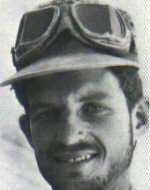Dattner, David
Son of Yaakov and Frida. He was born on June 30, 1947 in Kibbutz Yad Mordechai. He studied at the elementary school in Yad Mordechai and continued his high school studies at the kibbutz educational institution. He was modest in his manner and loved by all his friends. He was the class’s spokesman in all her activities. His experience and talents in the real professions had already been discovered in the lower grades of the school, and despite his attitude to the humanities, he always took part in solving the problems related to the tasks his group undertook. He also took a leadership position in all the roles his group had to play in managing the youth company in the educational institution. He was a member of Hashomer Hatzair, a counselor and head of the “ken” in Ashkelon. In his love and concern for the apprentices, he often visited their homes, talked to their parents, and traveled with them throughout the country. In his high school studies he discovered special talents in the fields of mathematics and physics and in his spare time he worked in the electricity industry and stood out in his inventions in this field. In November 1966, he was drafted into the IDF, and because of his lean body they wanted to put him in service in the Signal Corps, but he burst out and demanded that he be transferred to a combat unit. . Immediately after completing the course, he was transferred to the Suez Canal and in November 1967 he was sent to the officers’ course, which he completed in April 1968. He returned to the Canal for the first time as a second lieutenant, and was assigned a position that he thought was not quite combatable. Therefore, he “harassed” the commanders to give him a combat position in one of the strongholds. His subordinates called him “father,” since he would take care of all their needs, sleep with them and eat with them, and would not be called a commander. His commanders told him that he was prepared to embark on the most difficult missions with his soldiers. In April 1969 he was awarded the rank of lieutenant and was appointed deputy company commander. During the period of his service in the Suez Canal, he underwent all the severe incidents that occurred in April and August. This period was difficult for soldiers and commanders alike, because the effort required of them was great. But David did everything he was asked to do simply and simply – but thoroughly and with exemplary precision. He would deliberately enter areas that were not his, and in doing so he explained to the other commanders how important it is to work with the soldiers together in order to serve as an example and to encourage them. The outposts were subject to artillery fire and the exit from the bunker involved the danger of life, but David did not fulfill any role and undertook tasks that were not imposed upon him. There were cases when he was not careful and did not keep his life and when the company commander rebuked him for it, he would laugh. On the 6th of Tammuz 5729 (July 6, 1969), he fell from an artillery fire, while firing at the enemy, despite the heavy shelling that was placed on the outpost, exposed to enemy fire, so that the attacks would be accurate and the target would be achieved in its entirety. To the eternal rest of the cemetery at Kibbutz Yad Mordechai, after which he published a pamphlet in his memory entitled “David” with the words of his soldiers on it, his documents, etc. The memorial was also mentioned in the news of the Hof Ashkelon Regional Council.
